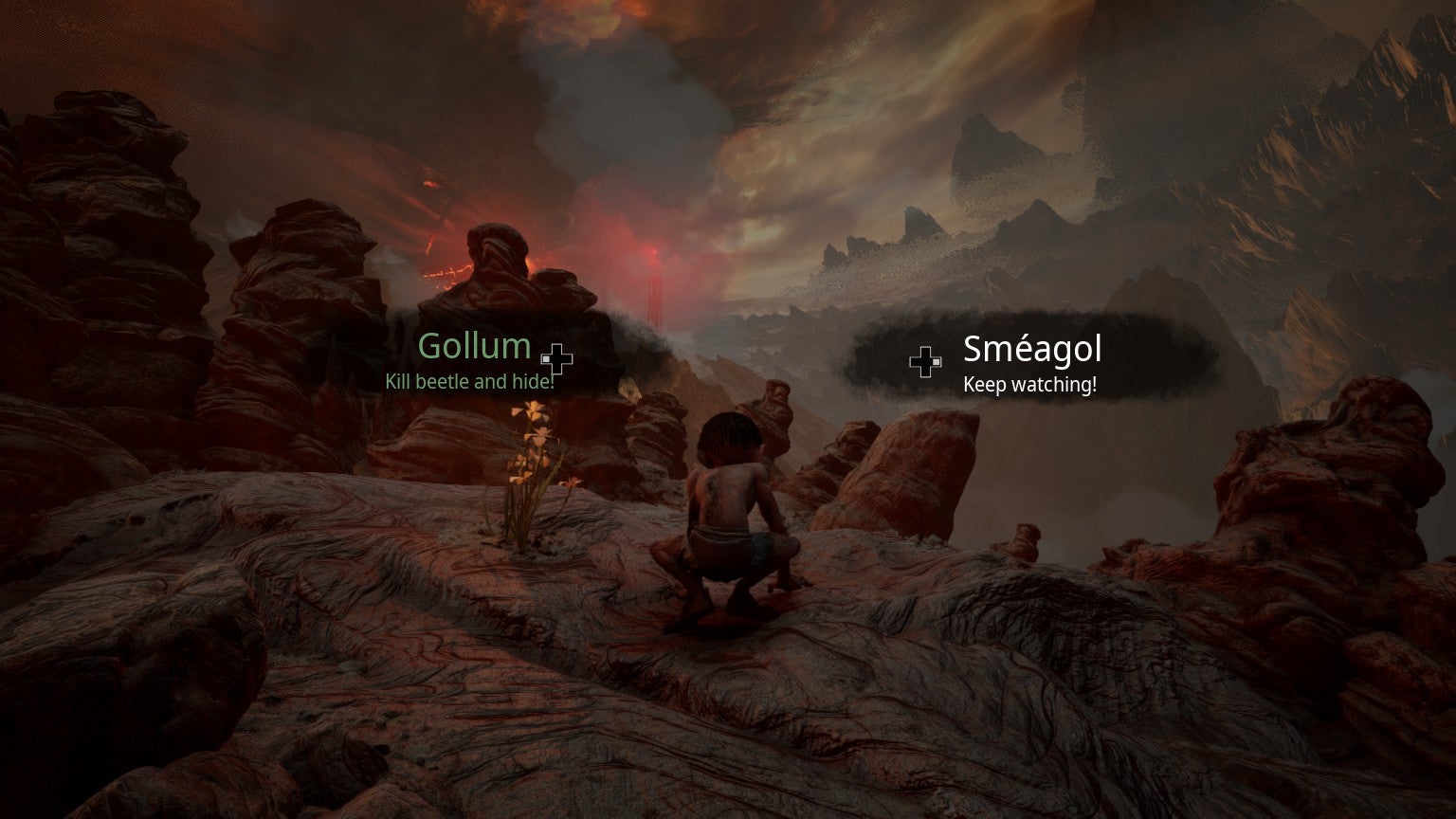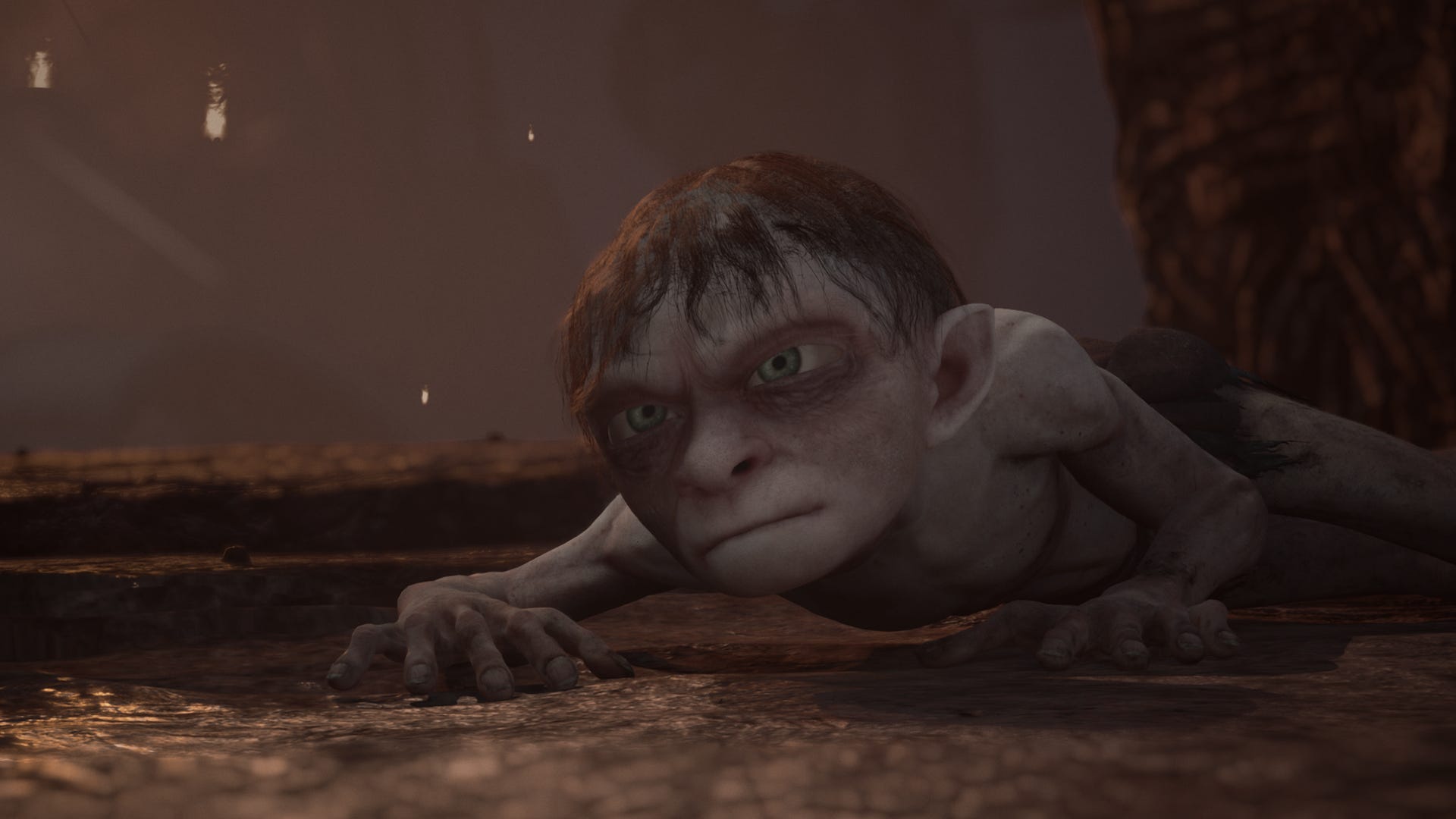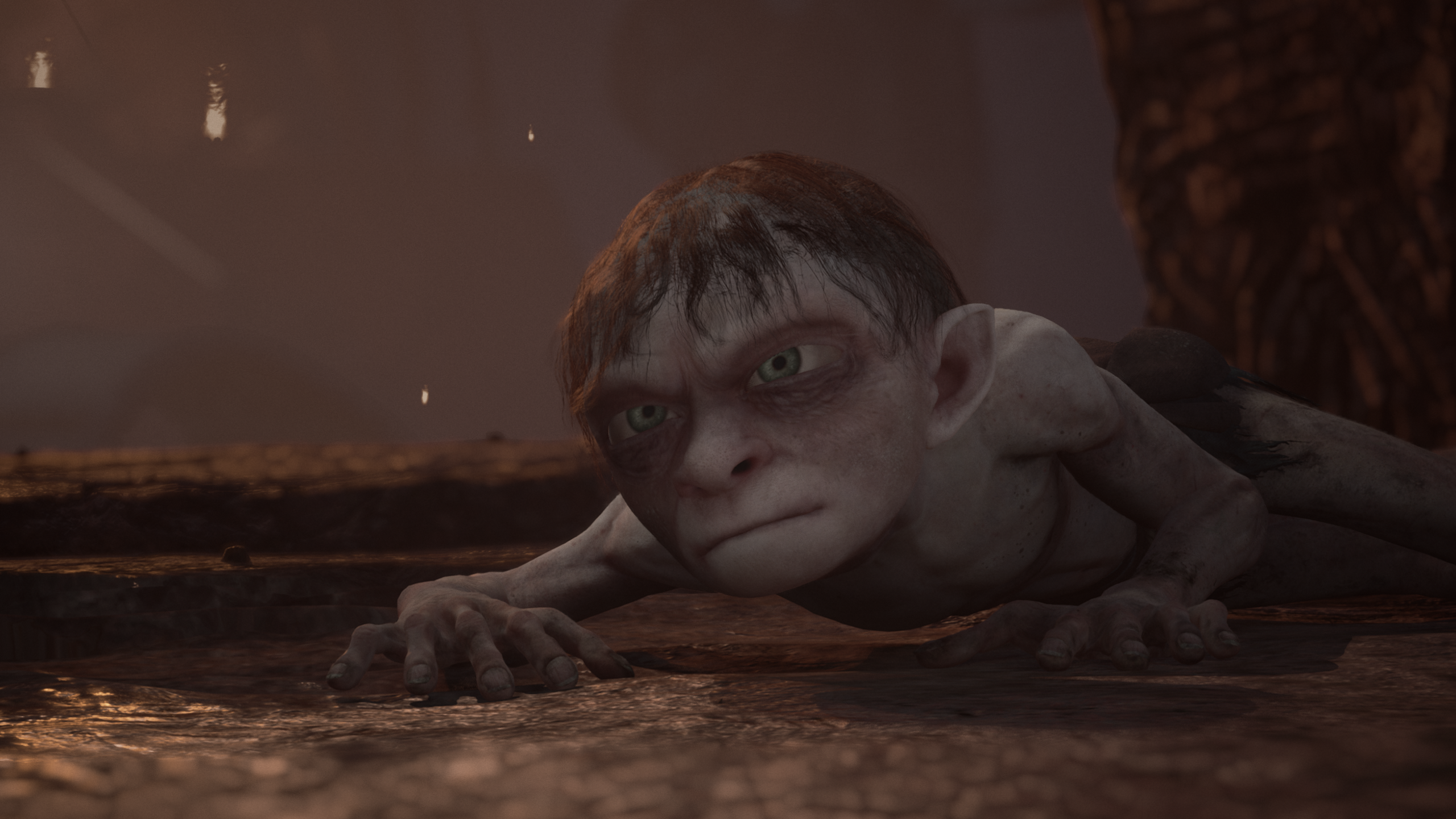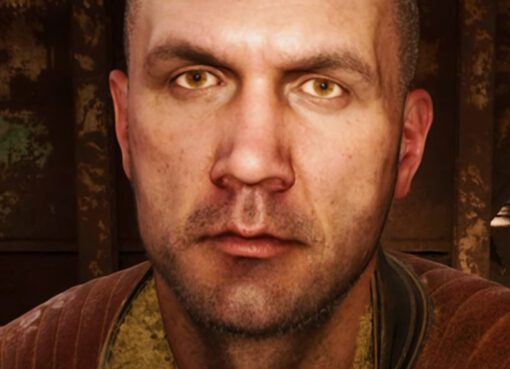Daedalic apparently knew the panned Lord of the Rings spin-off was a “total loss” long before release
The Lord of the Rings: Gollum is one of the more notable video game messes in recent years, with the Tolkien spin-off releasing earlier this year to universally negative reviews and claiming the unwanted position of being the worst game of 2023 so far on Metacritic and OpenCritic.
A new report has delved into some of what went wrong behind the scenes at developers Daedalic, alleging a combination of overstretched resources, crunch and ambitions to somehow create a triple-A game on a fraction of the budget.
More than 30 Daedalic staff spoke to German outlet Game Two, revealing that the studio set out with the lofty ambition of creating a story-driven game with a combination of different gameplay ideas. Among the different gameplay elements apparently considered during development was the ability to free climb in the style of The Legend of Zelda: Breath of the Wild, before the idea was ultimately discarded.
That didn’t stop the game cramming in a number of other half-baked and underused ideas, from different minigames and mechanics from a command menu for companions – which is only used four times in the final game – to the internal debate between Gollum and Smeagol, which at one point was going to be a more ambitious minigame requiring players to hit moving decision bubbles. The mechanic was never fully finished, resulting in an apparent “stopgap” solution making it into the final game.
The game also drifted away from its original focus on narrative but failed to adjust its gameplay to suit, resulting in long stretches where the player simply accompanies characters or stands still while story details are delivered to them. Some scenes meant to include animated characters were altered so that missing animations were hidden from the player, leading to one memorable scene where Gollum stares at a window while a conversation between two characters plays.
Adding to the problem of failing to live up to that over-ambitious vision was a lack of funding, with Daedalic reportedly making three applications for extra money that were turned down. In the end, the team was expected to create a triple-A experience on a total development budget of €15 million – said to be around a tenth of a typical triple-A video game budget.

On top of that, morale faltered under an allegedly stressful working environment fostered by the company’s CEO and COO, which resulted in employees speaking in whispers to avoid being overheard and shouted at. Daedalic denied the claims and said that the studio has a “friendly working atmosphere”.
Morale reportedly took an additional hit when Bastei Lübbe, the German book publishing giant that owned Daedalic at the time, “publicly doubted” the developers by saying that they “saw no future prospects for Daedalic”. For a number of years there were no co-investors on the project, with things apparently only improving once Nacon joined as co-publisher.
The lack of money combined with a “time factor”, as the licence to make a Lord of the Rings game was time-limited. Regardless, the game was delayed from its original release date in 2021 to 2022, before sliding back further to this year.
That final delay was reportedly seen as nothing more than an attempt at “damage limitation” by the company, with Game Two claiming that devs knew the game was “a total loss” long before its catastrophic release.
“You can’t just throw more money at something like that, hang on for another year and then everything will be fine,” said senior developer and technical director Paul Schulze. “That’s unrealistic because the game underneath it doesn’t support it.”
Gollum released in such a state that Daedalic released an apology for the “underwhelming experience” and “disappointment” of fans. Two sources who spoke to Game Two claimed that the apology was generated by AI tool ChatGPT, and that it was published by Nacon without any knowledge or involvement from Daedalic.
In July, Daedalic reportedly laid off more than two dozen staff – over a quarter of its workforce – and cancelled a sequel to Gollum due to release in late 2024. The report added that the studio would no longer develop video games internally and instead focus on its publishing efforts.
Bringing you the latest news and reviews for games on Steam!
- Steam Gamer
- Steam Gamer
- Steam Gamer
- Steam Gamer
- Steam Gamer
- Steam Gamer
- Steam Gamer
- Steam Gamer
- Steam Gamer
- Steam Gamer
- Steam Gamer
- Steam Gamer
- Steam Gamer
- Steam Gamer
- Steam Gamer
- Steam Gamer
- Steam Gamer
- Steam Gamer
- Steam Gamer
- Steam Gamer
- Steam Gamer
- Steam Gamer
- Steam Gamer
- Steam Gamer
- Steam Gamer
- Steam Gamer
- Steam Gamer
- Steam Gamer
- Steam Gamer
- Steam Gamer
- Steam Gamer
- Steam Gamer
- Steam Gamer
- Steam Gamer
- Steam Gamer
- Steam Gamer
- Steam Gamer
- Steam Gamer
- Steam Gamer
- Steam Gamer
- Steam Gamer
- Steam Gamer
- Steam Gamer
- Steam Gamer
- Steam Gamer
- Steam Gamer
- Steam Gamer
- Steam Gamer
- Steam Gamer
- Steam Gamer
- Steam Gamer
- Steam Gamer
- Steam Gamer
- Steam Gamer
- Steam Gamer
- Steam Gamer
- Steam Gamer
- Steam Gamer
- Steam Gamer
- Steam Gamer
- Steam Gamer
- Steam Gamer
- Steam Gamer
- Steam Gamer
- Steam Gamer
- Steam Gamer
- Steam Gamer
- Steam Gamer
- Steam Gamer
- Steam Gamer
- Steam Gamer
- Steam Gamer
- Steam Gamer
- Steam Gamer
- Steam Gamer
- Steam Gamer
- Steam Gamer
- Steam Gamer
- Steam Gamer
- Steam Gamer
- Steam Gamer
- Steam Gamer
- Steam Gamer
- Steam Gamer
- Steam Gamer
- Steam Gamer
- Steam Gamer
- Steam Gamer
- Steam Gamer
- Steam Gamer
- Steam Gamer
- Steam Gamer
- Steam Gamer
- Steam Gamer
- Steam Gamer
- Steam Gamer
- Steam Gamer
- Steam Gamer
- Steam Gamer
- Steam Gamer
- Steam Gamer
- Steam Gamer
- Steam Gamer
- Steam Gamer
- Steam Gamer
- Steam Gamer
- Steam Gamer
- Steam Gamer
- Steam Gamer
- Steam Gamer
- Steam Gamer
- Steam Gamer
- Steam Gamer
- Steam Gamer
- Steam Gamer
- Steam Gamer
- Steam Gamer
- Steam Gamer
- Steam Gamer
- Steam Gamer
- Steam Gamer
- Steam Gamer
- Steam Gamer
- Steam Gamer
- Steam Gamer
- Steam Gamer
- Steam Gamer
- Steam Gamer
- Steam Gamer
- Steam Gamer
- Steam Gamer
- Steam Gamer
- Steam Gamer
- Steam Gamer
- Steam Gamer
- Steam Gamer
- Steam Gamer
- Steam Gamer
- Steam Gamer
- Steam Gamer
- Steam Gamer
- Steam Gamer
- Steam Gamer
- Steam Gamer
- Steam Gamer
- Steam Gamer
- Steam Gamer
- Steam Gamer
- Steam Gamer
- Steam Gamer
- Steam Gamer
- Steam Gamer
- Steam Gamer






Comment here